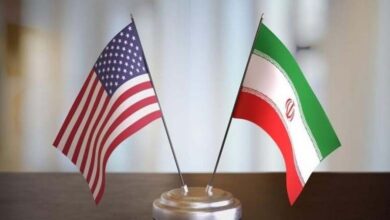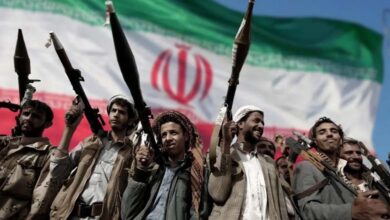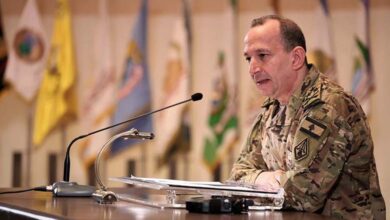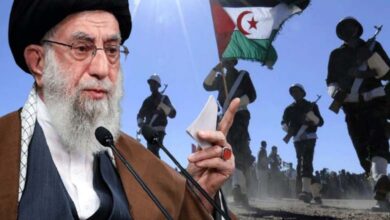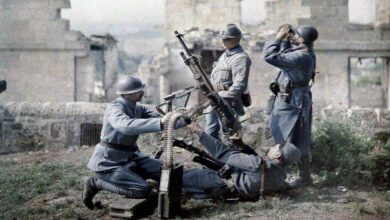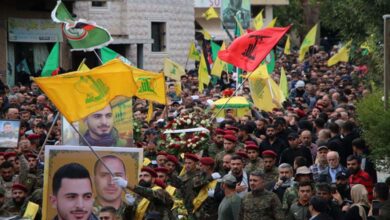Born from the “Nakba”: What is UNRWA?
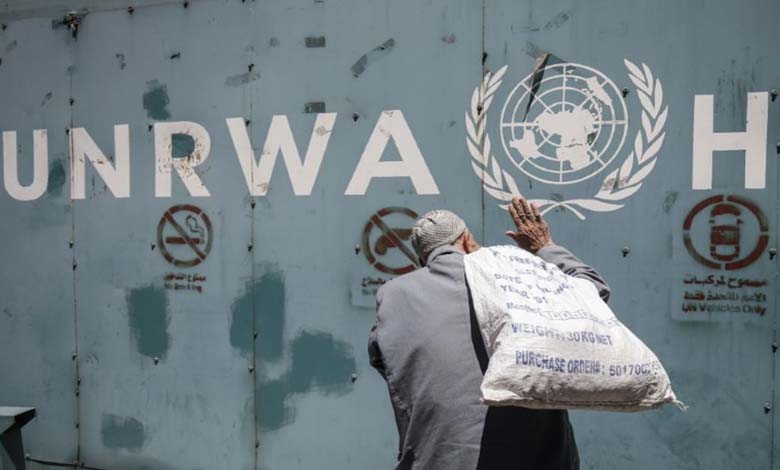
For over seven decades, UNRWA has served as a “lifeline” for millions of Palestinian refugees in the areas where they reside.
But today, this safe haven and unique ray of hope for millions of Palestinians is fading with Israel’s ban on the activities of the United Nations Relief and Works Agency for Palestine Refugees (UNRWA) on its territory.
-
Israel officially notifies the UN of the cancellation of its UNRWA agreement
-
UNRWA: “Looting” Operations Hamper Aid Delivery in Gaza
Today, Monday, a week after the ban decision, Israel announced that it had officially informed the United Nations of the severance of its relations with UNRWA.
When was UNRWA founded?
The United Nations Relief and Works Agency for Palestine Refugees, UNRWA, was established on December 8, 1949, by UN General Assembly Resolution 302, following the 1948 war (or Nakba), and began operations on May 1, 1950.
-
UNRWA warns: Gaza witnesses the largest displacement of Palestinians since 1948
-
Netanyahu Proposes Full Reoccupation of Gaza and Removal of UNRWA
Before its creation, the “United Nations Programme for Assistance to Palestinian Refugees,” established in 1948, was tasked with aid missions for Palestinian refugees.
But the new agency took over the missions that fell to this program, while being tasked with more effectively addressing the economic and social needs of all Palestinian refugees.
What does it offer?
According to the agency’s website, it has a humanitarian and development mandate to provide aid and protection to Palestinian refugees until a just and durable solution is found to their situation. Its missions include:
-
Number of Deaths in Gaza So Far: A Shocking Toll of the War
-
Sa’ar the “Rebel” and Netanyahu: From Bitter Foe to “Savior”
- Education
- Healthcare
- Social services
- Camp infrastructure
- Micro-financing
- Emergency aid, including during periods of armed conflict.
There are over 540,000 children studying in UNRWA schools, which also manages 141 primary health care facilities, serving about seven million patients each year, and provides food and financial assistance to around 1.8 million people.
-
“Bridge of Dignity”: The Palestinians’ “Triple Nationality” Gateway to the World
-
Netanyahu between Street Anger and the Grip of the Right… Limits of Tolerance “at Risk”
Where does it work?
UNRWA operates in the Gaza Strip, the West Bank, including East Jerusalem, Syria, Lebanon, and Jordan, where it initially took in 700,000 Palestinians forced to leave their homes or flee after the creation of the state of Israel.
In the besieged Strip, the UN agency is considered the “pillar” of the humanitarian response in Gaza, with at least 222 of its employees killed and two-thirds of its facilities destroyed or damaged, according to UN figures.
-
In Gaza: Bombing and Overcrowding, Two Faces of One Death
-
Despair Increases in the “Death Zone”: UN Alarm Over “Appalling Conditions” in Gaza
UNRWA announced that Israel had definitively prevented it from delivering aid to northern Gaza, which is on the brink of famine.
How many beneficiaries?
Approximately six million Palestinians are registered with UNRWA and can benefit from its services.
There are also a total of 58 refugee camps recognized by the UN agency, including 19 in the West Bank.
-
Analysts reveal the suffering of citizens in Gaza due to the ongoing conflict
-
Three Arab States Refuse to Participate in Gaza Peacekeeping Force
Where does it derive its mandate?
Since UNRWA‘s establishment in 1949, the agency’s mandate has not been defined in a single source or document. Instead, its mandate primarily derives from UN General Assembly resolutions.
Why did the Knesset ban it?
Last Monday, the Knesset officially banned UNRWA‘s activities in Israel, despite opposition from Washington, the United Nations, and the international community.
-
Spokeswoman for the Palestinian Red Crescent: The Israeli Occupation Targets Hospitals in Gaza
-
CNN: New Israeli Evacuation Orders for Thousands of Palestinians in Gaza
This ban, passed by a majority of 92 votes to 10, came after years of sharp Israeli criticism of UNRWA, which intensified since the beginning of the war in Gaza.
A ban that constitutes a historic precedent following months of escalating tensions between the agency and Israel.
Context of the ban
Israeli criticism of the UN agency had intensified since the outbreak of the war in the Gaza Strip on October 7, 2023.
-
Palestinian Analyst highlights harsh humanitarian conditions in Gaza
-
Why Did Netanyahu Prevent Gallant and the Shin Bet from Making Independent Decisions?
Earlier this year, Israel accused dozens of UNRWA employees in Gaza of being involved in the attack launched by Hamas on October 7 against Israeli localities, without finding evidence to substantiate these allegations.
Reactions to the ban
This Israeli decision has sparked a wave of international and Arab condemnation.
The United States expressed its “deep concern” regarding this legislation. State Department spokesperson Matthew Miller stated: “We have conveyed our deep concern to the Israeli government regarding this legislation,” highlighting the “crucial” role the agency plays in distributing aid to Gaza.
-
Gaza Under Fire, Famine, and the Unknown… A Disaster Arising from the Ashes
-
Gaza Tragedy: Hunger Claims Children’s Lives Amid Siege
He added: “We continue to encourage the Israeli government to suspend the enforcement of this legislation and ask them never to pass it. We will review next steps based on what happens.”
For his part, British Prime Minister Keir Starmer stated that his country was “very concerned” about the adoption of this legislation by the Israeli parliament, warning that it could make UNRWA‘s fundamental work for Palestinians impossible, thus jeopardizing the overall international humanitarian response in Gaza.
-
In a message to the arabs… Sinwar reveals Hamas’s stance on Biden’s plan to end the Gaza War
-
Amid Fire and Destruction, Palestinian Children Pay the Price of War’s Horrors and Seek Food
The United Arab Emirates strongly condemned the Israeli parliament’s approval of two laws banning UNRWA‘s work, preventing the agency from carrying out its essential functions in the occupied Palestinian territories, including East Jerusalem.
The Emirates emphasized the active and central role of the agency in providing humanitarian aid to the Palestinian people, especially under the challenging conditions they are facing due to the ongoing war in Gaza.
-
Amid Fire and Destruction, Palestinian Children Pay the Price of War’s Horrors and Seek Food
-
Israel’s threat to isolate Palestinian banks raises US concern
The UAE Foreign Ministry stated in a statement that “this decision contradicts the provisions of the United Nations Charter and international standards and will lead to a worsening of the critical and degrading humanitarian situation.”
Catastrophe
UN Secretary-General António Guterres defended UNRWA, stating that it represents “the only ray of hope for millions” of Palestinian refugees and a “lifeline of hope and dignity,” depriving it would be “unfathomable cruelty.”
Philippe Lazzarini, the UNRWA Commissioner-General, described this ban as a “dangerous precedent” and stated that it constitutes the last stage of a “continuous campaign of demonization” of the agency, noting that this measure “will increase the suffering of Palestinians.”
-
Final Warning to Netanyahu: War Government Turns Against the Prime Minister Over Gaza
-
Democratic Lawmakers Uncover Evidence of Israel’s Involvement in Violating US Law
UNRWA spokesperson Juliette Touma stated that if this ban were implemented, “it would be a catastrophe, particularly due to its potential impact on humanitarian operations in Gaza and in several areas of the West Bank.”
She told Agence France-Presse: “UNRWA is the largest humanitarian organization in Gaza and is primarily responsible for the humanitarian response, especially regarding housing, food, and basic healthcare.”
For his part, the Director-General of the World Health Organization, Tedros Adhanom, condemned the Israeli decision as “unacceptable,” stating it would have “serious consequences.”
-
72 Crucial Hours in Israel… Prisoner Swap Deal or Invasion of Rafah?
-
Hamas Receives Israel’s Latest Ceasefire Proposal Before Attack on Rafah
Who does the Israeli decree target?
This legislation will target the agency’s operations in East Jerusalem, including cleaning, education, and healthcare services in certain neighborhoods.
The legislation will also deprive agency employees of certain benefits granted to diplomatic staff, including tax exemptions.
UNRWA employs about 18,000 people in the West Bank and Gaza Strip, including 13,000 in the education sector and 1,500 in healthcare.
-
Israel Caught Between Rafah and Iran.. Will it Break the Pressure Barrier?
-
Israeli Army and Mossad Agree on Plans to Strike Iran
Israel has always criticized the agency and its work, even before the attack.
It has accused UNRWA and other humanitarian organizations of restricting the delivery of aid to the Gaza Strip.
UNRWA has suffered enormous losses, with at least 223 of its employees killed and two-thirds of its facilities damaged or destroyed in the Gaza Strip since the outbreak of the war.


